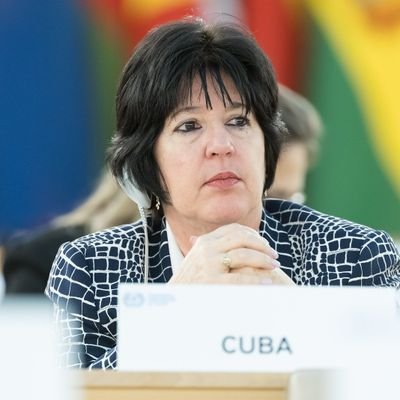Cuba’s Labour and Social Security Minister has stepped down following a wave of public backlash after comments dismissing poverty on the island. The minister claimed that individuals appearing to be homeless were merely pretending and accused them of taking advantage of public sympathy.
The remarks were made during a meeting with deputies from the National Assembly, where she asserted that those who appeared to be beggars were, in fact, disguised and living comfortably. She also criticized individuals who clean car windscreens and those seen rummaging through garbage, claiming they do so not out of necessity but to make untaxed profits or to finance drinking habits.
These statements ignited a firestorm across the country, where the economic crisis has left many struggling to meet basic needs. Citizens quickly took to social media to condemn the remarks, describing them as offensive and out of touch with the realities of daily life in Cuba. Calls for her resignation grew louder, as did frustration with how the government has been handling worsening poverty and inflation.
The presidency announced the resignation, stating that the official had recognized her lack of objectivity and empathy in handling a deeply sensitive matter. The announcement emphasized that social vulnerability must be treated with care and that the comments did not reflect the values of the nation’s leadership.
The country’s head of state also weighed in, expressing concern over the insensitivity shown during the parliamentary session. Without naming the minister directly, he stressed that addressing hardship with compassion is central to the government’s duty, echoing the long-held revolutionary principle that no citizen should be left behind.
Cuba is currently facing one of its worst economic downturns in decades. Street vendors and informal businesses have become more visible, with many people selling homemade goods, food, and salvaged materials just to get by. On the streets of Havana, it’s increasingly common to see individuals sitting on sidewalks or operating out of old vehicles, trying to make a living.
The island’s ongoing economic struggles are compounded by decades-long international restrictions. A trade embargo dating back to the 1960s continues to block financial operations and restrict access to critical goods, including fuel and spare parts. While many nations have voiced opposition to the embargo in global forums, the restrictions remain largely in place, with recent US policies tightening them even further.
Cuba has also experienced severe energy shortages in recent months, leading to widespread blackouts. These issues have been exacerbated by a reduction in oil shipments from Venezuela, a key ally also facing its own economic crisis.
Despite the challenges, tourism remains a vital pillar of the economy, with millions visiting each year. However, new sanctions targeting senior officials and state-linked luxury establishments have raised concerns about further economic isolation.
With a gross domestic product that once categorized the country as upper middle income, the current state of affairs has cast a spotlight on rising inequality and growing public discontent. The recent resignation may signal a shift toward more sensitive and realistic approaches to Cuba’s growing social and economic vulnerabilities.

